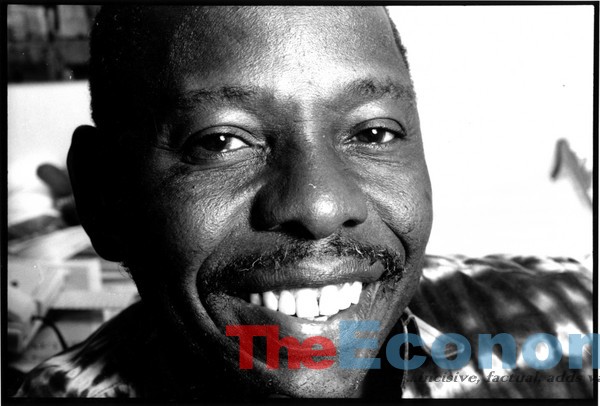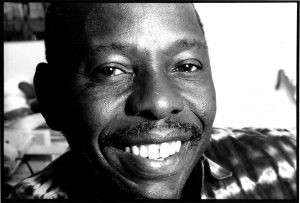Recently, activists marked the 25th anniversary of the death of Ken Saro-Wiwa, a playwright, environmental activist and Ogoni leader who was executed by the Nigerian government.
Saro-Wiwa and eight other Ogoni leaders were tried by a secret military tribunal and executed by hanging on November 10, 1995. It was a tragic end to their non-violent campaign against the Royal Dutch Shell Company and the Nigerian government over the economic injustices and the pollution of Ogoniland that arose from oil exploitation.
He was accused, alongside the eight other Ogoni leaders, of responsibility for the murder of four Ogoni chiefs at a pro-government meeting.
In Ogoni, Rivers State, Nigeria’s South-South, a memorial was organised on Tuesday in honour of Mr Saro-Wiwa and the others, with the Ogoni leaders calling on the Nigerian government to exonerate them of all wrongdoing as a step towards restoration of peace in the area.
In Akwa Ibom State, also in Nigeria’s South-South, a book club – The Uyo Book Club – organised a colloquium, on Tuesday, in honour of Mr Saro-Wiwa.
“Saro-Wiwa was a world renowned peace advocate who fought for the liberation of the Niger Delta but was cut down in his prime by the Gen. Sani Abacha military junta.
“Alongside Isaac Boro who took up arms, fought as a soldier and was killed during the Nigerian civil war, Ken Saro-Wiwa fought for the rights of his people using the pen and together, they remain two very important agitators in the Niger Delta struggle before the current democratic dispensation,” the book club said.
In far away South Africa, a radio station played one of Mr Saro-Wiwa’s speeches to mark the day.
In the process, the radio station interviewed Barry Wuganaale, the coordinator of the Ogoni Solidarity Forum in South Africa, who spoke on “The Significance of Mr Saro-Wiwa’s Struggles”. He emphasized that 25 years after, Ogoni leaders call for exoneration of Ken Saro-Wiwa
The execution of Mr Saro-Wiwa and the other Ogoni leaders was “one of the worst excesses of the Abacha dictatorship in Nigeria,” a Centre for Legal Education and Research in Ireland tweeted on Tuesday.
In the United Kingdom, activists gathered in London to listen to a speech Mr Saro-Wiwa prepared, but was prevented from reading before the military tribunal that sentenced him and others to death. The reading was held on September 2, but its video was published on November 10 to mark Mr Saro-Wiwa’s killing.
It was read by Esther Stanford-Xosei, a UK activist who has been campaigning for reparation for Africa for the decades of slavery:
“My Lord, we all stand before history,” Ms Stanford-Xosei read from late Mr Saro-Wiwa’s speech.
She continued: “I am a man of peace, of ideas, appalled by the denigrating poverty of my people who live on a richly endowed land, distressed by the political marginalisation and economic strangulation, angered by the devastation of their land, their ultimate heritage, anxious to preserve their right to life and to a decent living, and determined to usher to this country as a whole a fair and just democratic system which protects everyone and every ethnic group and gives us all a valid claim to human civilisation. I have devoted my intellectual and material resources, my very life, to a cause in which I have total belief and from which I cannot be blackmailed or intimidated.”
The speech got an ovation from the small crowd, mostly writers, after its 6:28 minutes presentation.
Mr Saro-Wiwa’s speech, quite emotional, talked about his innocence of the charges against him, the justification for his peaceful campaign against Shell and the Nigerian government, and the repercussions that would follow.
“We all stand on trial, my lord, for by our actions we have denigrated our country and jeopardised the future of our children. As we subscribe to the sub-normal and accept double standards, as we lie and cheat openly, as we protect injustice and oppression, we empty our classrooms, denigrate our hospitals, fill our stomachs with hunger and elect to make ourselves the slaves of those who ascribe to higher standards, pursue the truth, and honour justice, freedom, and hard work.
“I predict that the scene here will be played and replayed by generations yet unborn. Some have already cast themselves in the role of villains, some are tragic victims, some still have a chance to redeem themselves. The choice is for each individual.
“I predict that the denouement of the riddle of the Niger Delta will soon come. The agenda is being set at this trial. Whether the peaceful ways I have favoured will prevail depends on what the oppressor decides, what signals it sends out to the waiting public.
“In my innocence of the false charges I face here, in my utter conviction, I call upon the Ogoni people, the peoples of the Niger Delta, and the oppressed ethnic minorities of Nigeria to stand up now and fight fearlessly and peacefully for their rights.
“History is on their side. God is on their side. For the Holy Quran says in Sura 42, verse 41: “All those that fight when oppressed incur no guilt, but Allah shall punish the oppressor, come the day,” late Saro-Wiwa said in the speech.
Nigeria’s oil-rich Niger Delta region has gone through horrible years of turbulence after the killing of Mr Saro-Wiwa.
Corruption and mismanagement of resources has stalled human and infrastructural development in the area, while poverty and hunger is on the increase.
Amber Massie-Blomfield, a writer and one of those who listened to Saro-Wiwa’s speech as read by Ms Stanford-Xosei, had this to say.
“We sat there for hours, as night fell and the drizzle soaked into everything. Mr Saro-Wiwa’s words “clung to me, like so much autumn rain”, Massie-Blomfield said.
“Something I’ve been thinking about a lot in the last few years is the political power of art. It’s a well-worn argument in creative circles, repeated every decade or so – can art really change anything? Or are those who write poems or stage dramas wasting the time they could be lobbying MPs, starting petitions and marching on government?
“The debate, though, seems academic when confronted with the messy reality of how political change happens in the real world. Saro-Wiwa wasn’t an artist, or an activist. He was both, and those personas fed each other – he was able to lead the resistance to the crimes being committed against his people because he understood how words and images work to capture the imagination and inspire action. And his politics gave his creativity purpose and direction. They were parts of the whole; indeed I wonder if he could have become the activist that he did if he hadn’t first given form to the injustices he saw around him on the page,” Ms Massie-Blomfield said.
“We all lead political lives, and to live ethically means to engage with that, to fight with all that we have to shape a better world. That imperative demands not that creative people set aside our pens, instruments and paintbrushes, rather that we bring them to the struggle.
“Saro-Wiwa recognised this. A few days before he was killed, he wrote a short story in which the narrator is languishing in prison after being tortured. A ghost, dressed in Nigerian Army uniform, appears in front of him. It is here, it explains, ‘to finish’ him.
“The narrator appears unafraid. The ghost, curious, holds off shooting him for a moment, and asks how he can be so undaunted in the face of certain death. ‘I have what is greater than your weapon’, the narrator explains, and paraphrases Blake – ‘I will not cease my mental fight/ Nor shall my pen sleep in my hand / Till they have built a new Ogoni/ In Niger delta’s wealthy land’. With that, he draws out his pen, and the ghost perishes.



